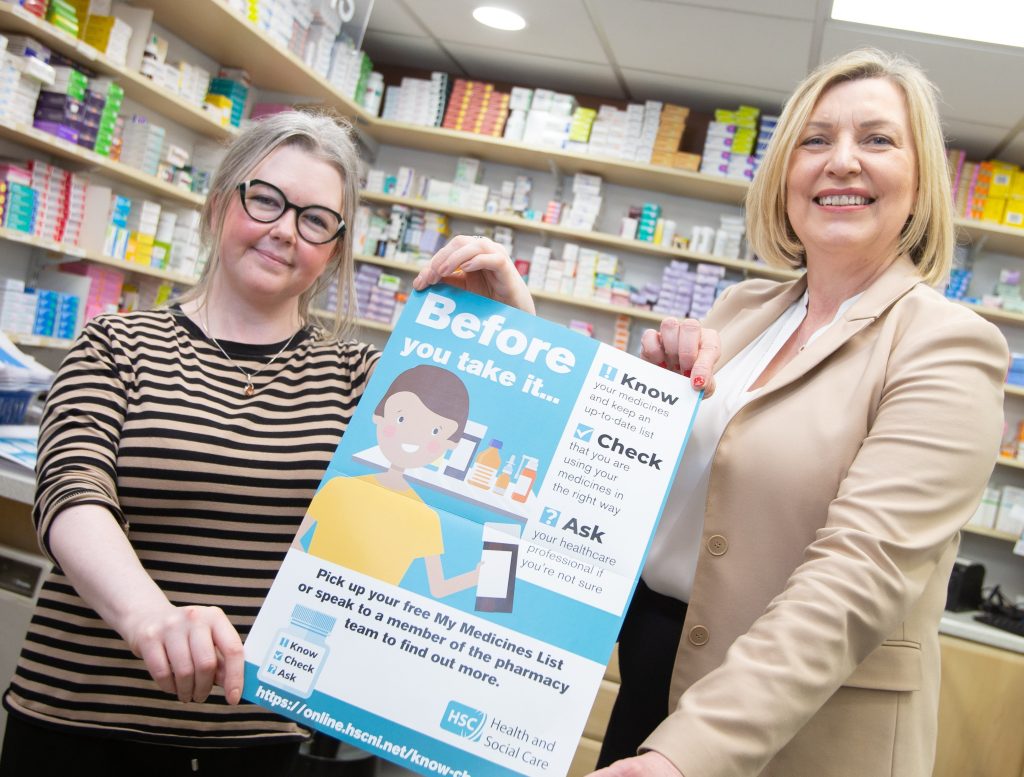Health Minister Robin Swann has taken additional steps to help women access vital medicines safely and effectively.
The Minister has today approved additional protocols to provide pharmacists with the flexibility to safely issue appropriate substitute medicines for a number of Hormone Replacement Therapy (HRT) products.
The Department recently authorised a number of Serious Shortage Protocols which enabled pharmacists to limit dispensing of prescriptions for particular HRT products in short supply. This additional step will further empower pharmacists, enabling them to safely offer substitute high-demand products with appropriate alternatives, such as transdermal patches, which are in good supply.
The Minister said: “Women’s health is a priority and it is imperative that women have access to hormone replacement products that are safe and effective. Today I have approved a number of serious shortage protocols which will allow pharmacists the flexibility to safely offer women appropriate substitutes for HRT products that are currently in short supply.
“My Department has been working closely with colleagues across the UK to ensure HRT is available for everyone who needs it and I am pleased to see early action taken by the HRT Taskforce for the benefit of the whole UK, with suppliers continuing to increase the supply of some products which is a testament to the collaborative approach being taken.
“I will continue to work with my UK counterparts to ensure the long-term stability of supply for HRT products going forward.”
Appropriate alternative products will be available for Oestrogel, Ovestin cream, Lenzetto transdermal spray and Sandrena gel sachets – with appropriate alternatives, such as transdermal patches, which are in good supply.
Chief Pharmaceutical Officer, Cathy Harrison said: “Community pharmacists are ideally placed to support women with their health needs and these protocols give women the option to substitute products when their usual treatment is not available. This is a safe, effective way to ensure HRT continues to be available for those women who need it to manage their menopausal symptoms. It is also a vote of confidence in the ability of pharmacy teams to effectively manage supply disruptions and maintain patient care. Anyone who has questions or concerns about HRT should speak to their GP or pharmacist.”
Reacting to the Department of Health’s decision to temporarily allow pharmacists to substitute hormone replacement therapy (HRT) products, Chief Executive of Community Pharmacy NI, Gerard Greene said:
“The Department of Health’s decision to introduce serious shortage protocols (SSPs) recognises the supply issues with HRT products and that urgent action is needed to support patients at this time. Community pharmacists are ideally placed to support patients requiring HRT and welcomes the SSP arrangements that have been granted to enable suitable alternatives to be provided.
This means patients will have timely and continued access to medication as needed, while taking steps to address the lengthy, often distressing waits many patients have been faced with in obtaining their HRT products.
“To date, community pharmacists have done their utmost to support patients throughout what is now recognised as a national shortage of HRT products. While it may be the case that patients are given a different product than they are used to, the intent of this policy is protecting continuity of supply of HRT medicines for patients during these challenging times.”



